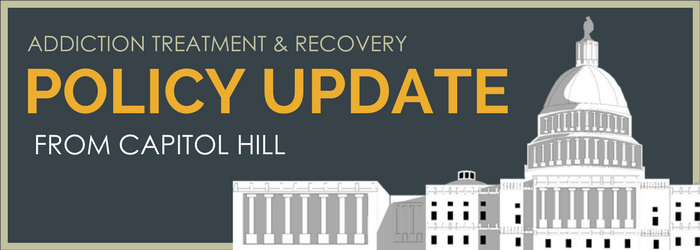
February 13, 2017 |
February 2017 Addiction Policy Update

Affordable Care Act Repeal & Replacement
As Congress reconvened this month and President Trump was sworn into office, the process began for fulfilling a major Republican campaign promise: repealing and replacing the Affordable Care Act (ACA).
Earlier this month, both the House and Senate passed a non-binding budget resolution that starts the procedural process for repealing the law.
On January 20th, one of President’s Trump’s first executive orders was to instruct the federal agencies to use their authorities to repeal the ACA and grant more flexibility to the states. The order does not give the Agencies any new powers and does not repeal the law by itself, but it may change how the law is implemented. For example, the Agencies could use it to stop enforcing the individual mandate. There is a great deal of uncertainty about the full implications of the order, which will probably remain until the Secretary of the Department of Health and Human Services (HHS) and the Administrator of the Centers for Medicare and Medicaid Services (CMS) are confirmed in the coming month or so.
Additionally, this week, Senators Collins (R-ME) and Cassidy (R-LA) introduced an ACA replacement bill. The Senators’ plan lets states choose from three options: keep the current ACA system, reject any federal assistance, or transition to a new program that will automatically enroll eligible individuals in a high-deductible plan linked to a health savings account.
One provision of particular note: under the bill, plans would have to offer a mental health/substance use disorder benefit that is compliant with the Mental Health Parity and Addiction Equity Act (MHPAEA) (page 8).
Why it Matters
The ACA requires health plans in the individual/small group markets and Medicaid expansion benefit to cover addiction and mental health treatment and comply with MHPAEA. Repeal of the law without an adequate replacement plan could eliminate these benefits and other consumer protections such as the prohibition on annual and lifetime caps and discrimination against individuals with pre-existing conditions.
This Policy Update was generously provided by Holly Strain & Carol McDaid of Capitol Decisions.

